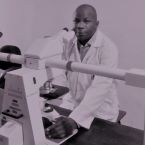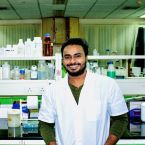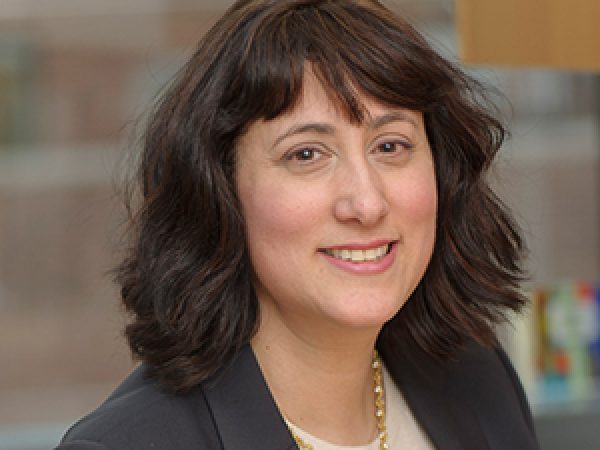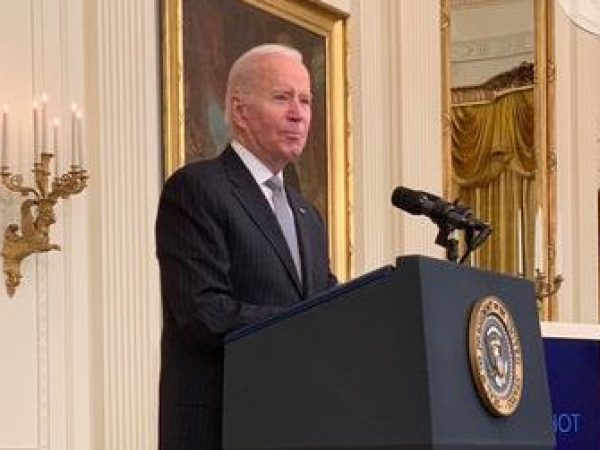AACR Annual Meeting 2021: Welcoming a New Class of Global Scholars-in-Training
For a second year in a row, the Global Scholar-in-Training Award (GSITA) program will welcome early-career researchers from around the world to a virtual American Association for Cancer Research Annual Meeting. In an ordinary year, the GSITA program provides travel awards for award recipients to come to the United States for the Annual Meeting. While the coronavirus pandemic continues to limit travel, we anticipate another productive year for our GSITA scholars.
This year’s GSITA recipients represent nine countries—Argentina, Brazil, China, Egypt, India, Malaysia, Mexico, Nigeria, and South Africa. The awardees are:
- Isaacson Bababode Adelani of Covenant University in Ota, Nigeria;
- Adeleye Adeshakin of Shenzhen Institute of Advanced Technology in Shenzhen, China;
- Ajayi Babajide Oluwaseun, PhD, of Ajayi Crowther University in Oyo, Nigeria;
- Juan Bizzotto of Universidad de Buenos Aires in Argentina;
- Annie Wai Yeeng Chai, PhD, of Cancer Research Malaysia in Kuala Lumpur, Malaysia;
- Kezhong Chen, MD, of Peking University People’s Hospital in Beijing, China;
- Leticia Ferro Leal, PhD, of the Molecular Oncology Research Center, Barretos Cancer Hospital in Barretos, Brazil;
- Mariam Fouad, PhD, of the National Cancer Institute at Cairo University in Egypt;
- Alin Garcia Miranda of Autonomous University of Guerrero in Guerrero, Mexico;
- Rahaba Makgotso Marima, PhD, of the University of Pretoria in South Africa;
- Carla Daniela Robles-Espinoza, PhD; of the International Laboratory for Human Genome Research, National Autonomous University of Mexico in Queretaro, Mexico;
- Alka Singh, PhD, of Motilal Nehru National Institute of Technology Allahabad in Prayagraj, India;
- Marcela Teatin Latancia of the Institute of Biomedical Sciences, University of São Paulo in Brazil;
- Apoorva Uboveja of the Dr. B.R. Ambedkar Centre for Biomedical Research, University of Delhi in India;
- Weilong Yao, MD, of Beijing Friendship Hospital, Capital Medical University in Beijing.
Even with the constraints of a virtual Annual Meeting, our GSITA scholars can expect to take full advantage of the meeting’s scientific program offerings and opportunities to network with colleagues. As the 2021 scholars prepare for the meeting, last year’s recipients shared highlights of their experience.
Uzoamaka A. Okoli, PhD, Nigeria

Professional role: I am a lecturer and early-career researcher at the Department of Medical Biochemistry, College of Medicine, University of Nigeria, Nsukka.
What happened at the 2020 Virtual Annual Meeting: I presented an abstract titled, “Characterization and Establishment of Triple-negative Breast Cancer Patient Derived Xenograft Derived from a Nigerian Woman.” The study described how a patient-derived xenograft model was developed from primary breast cancer tissue derived from a consenting Nigerian woman during a mastectomy. Models like this will serve as preclinical therapeutic tools and help investigate breast cancer biology in Sub-Saharan African women, potentially enabling research into racial disparities.
What’s happened since: I received my doctoral degree and created a basic and translational cancer research group that I coordinate at my college. I am also working toward a postdoctoral program to further study triple-negative breast cancer biology with additional interests including functional genomics and circulating tumor DNAs (ctDNAs). My goal is to work toward eliminating disparities between races for better patient outcomes.
Why the GSITA program was important to me: The meetings were an assemblage of the crème de la crème in cancer research. I am deeply honored and privileged to be a recipient of an AACR GSITA. As an African woman, for my proffered paper to have been deemed meritorious and recognized has proven that the challenges faced in my work environment were worthwhile.
Adoke Kasimu Umar, MD, Nigeria

Professional role: I am a pathologist practicing at the Department of Pathology, Federal Medical Centre Birnin Kebbi, Nigeria.
What happened at the 2020 Virtual Annual Meeting: I presented an abstract on the histological variants and sites of presentation of malignant melanoma in a resource-poor setting. We evaluated 38 cases of malignant melanoma over a three-year period. While it is generally believed that malignant melanoma is less common in Black communities than in white communities, I have seen incidence in Blacks increase during the few years I’ve been practicing. Characterizing this disease will allow us to explore molecular pathways and develop more targeted immunotherapy treatments for our patients.
What’s happened since: Thanks to Slack groups set up during the meeting, I’ve been able to stay in touch with colleagues and senior researchers around the world. I have also shared with my colleagues what the AACR is all about and encouraged them to join this association, which is the largest community of cancer researchers in the world.
Why the GSITA program was important to me: I was thrilled to present my research findings at the Virtual Annual Meeting. This very interesting meeting gave me the opportunity to meet with AACR researchers and mentors, and to learn about recent advances in cancer treatment and clinical trials.
Sheikh Omar Bittaye, MD, The Gambia

Professional role: I am a specialist physician, a founding member of the National Hepatitis association, and a lecturer of internal medicine at The University of The Gambia. I am currently a trainee fellow in gastroenterology under the West African College of Physicians.
What happened at the 2020 Virtual Annual Meeting: I presented research on the clinical manifestation, staging, and prognosis of patients with hepatocellular carcinoma in The Gambia. We found hepatitis B virus as a significant factor in this form of liver cancer. Young males have been disproportionately affected, and are more likely to be symptomatic and have much shorter survival. These findings suggest that in resource-limited countries like The Gambia where screening programs and therapeutic interventions are limited, early preventative strategies are important.
What’s happened since: As the COVID-19 pandemic swept through The Gambia, many people were diverted from their typical work duties to assist with caring for COVID-19 patients. During this time, I was temporarily appointed as the COVID-19 coordinator for our main teaching hospital. This gave me the opportunity to gain valuable experience in both cancer and COVID-19.
Why the GSITA program was important to me: My attendance at the AACR Virtual Annual Meeting has given me the opportunity to share my work with other scientists, and it has also given me the opportunity to learn about current research on cancer disparities. It also gave me some ideas on how to acquire and use affordable and accessible methods to help improve cancer diagnosis and treatment in Sub-Saharan Africa.
Sefonias Getachew, Ethiopia

Professional role: I’m an assistant professor in the Department of Preventive Medicine, School of Public Health in Addis Ababa University, Ethiopia. I am currently in my final year of PhD work at Martin Luther University, Halle, Germany.
What happened at the 2020 Annual Meeting: It was a very fascinating meeting, despite having to attend virtually due to the COVID-19 pandemic. I benefited from many of the events, including the GSITA sessions. Those helped me think about how to shape my career in cancer research through developing networking and collaboration for impactful research. Moreover, I’m very inspired to focus on women who face disadvantages or who are living in rural settings. I am interested in focusing on improving early detection of cancer for better outcomes.
What’s happened since: I would say GSITA is a very motivating event. It helped me to look critically and in a focused way at cancer research. It helped me strengthen my network in cancer research. I have been sharing my experience with my students and colleagues. My participation in GSITA also helped me secure a recent early-career research award from my home university.
Why the GSITA program was important to me: I believe that improving the health system in Africa, particularly the diagnosis and treatment of cancer, should be an essential global agenda. GSITA connected me with researchers who share my passion and inspired me to work toward progress in African and beyond.
Priyanshu Sharma, India

Professional role: I am currently pursuing my PhD at the Cancer Biology Lab at the Indian Institute of Technology, Madras. My PhD thesis work focuses on micro-RNA-mediated cellular pathways in cervical cancer.
What happened at the 2020 Virtual Annual Meeting: I presented my PhD thesis work on the development of miRNA-based cancer therapeutics. In the study, titled “Single miRNA – multiple targets phenomenon,” I explained how a single miRNA candidate can effectively target and downregulate multiple oncogenes, thereby exerting a better antitumor effect.
What’s happened since: I have been able to showcase and share my research findings on a global stage. I’ve gotten valuable input from esteemed colleagues and senior researchers. I hope to use this feedback to build a strong science hub for students and researchers in India. Also, the career development session with accomplished scientists helped me gain clarity on different career options and funding opportunities.
Why the GSITA program was important to me: AACR Annual Meeting 2020 provided me a global stage to showcase and share my research findings and gain valuable input from the esteemed audience. The meeting was highly informative about frontline research and current cutting-edge technologies being used in cancer research. My time as a GSITA recipient will be helpful in overall career development and the establishment of future collaborations.
Muhammad Jawad Khan, PhD, Pakistan

Professional role: Assistant professor at COMSATS University Islamabad in Pakistan.
What happened at the 2020 Virtual Annual Meeting: I presented my recent research on the role of salivary miRNAs and their target genes in oral cancer patients of Pakistan. In the study I presented, my colleagues and I measured the expression pattern of selected miRNAs and their target genes in saliva samples of Pakistani oral cancer patients and healthy controls. The change in expression pattern of miRNAs and their target genes suggests a potential diagnostic role of these miRNAs in the detection of oral cancer by saliva samples at early stages.
What’s happened since: I teach undergraduate and graduate courses in addition to my role as a researcher. I’ve been able to share much of what I learned at the meeting with my students. Also, I have asked students to learn how to present research work online using several platforms because I believe that future conferences will likely have virtual and in-person arrangements.
Why the GSITA program was important to me: Due to the dearth of research grants and funding opportunities in Pakistan, scientists often struggle to pursue their research projects. My one-on-one feedback session with the AACR’s International Affairs team provided me the opportunity to discuss problems and issues in conducting research in Pakistan, and sparked some new ideas on how to overcome obstacles.



